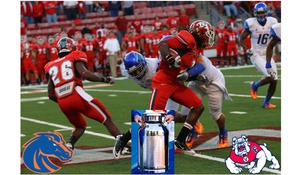The NHL is back, bet the underdogs!

The NHL has started the process of returning to action. The new format dives right into the playoffs with only seven teams excluded from the action. The bottom line is that hockey is coming back and many that are watching the games, will also be betting on them as well. In many sports it is understood to bet on the favorite and the favorite usually wins. Even in the NHL where the Stanley Cup winner is usually a top seed and not a wild card, bet on the underdogs. This year is different and there are many reasons to bet on the underdog when the season resumes.
The NHL historically has more upsets
Last season in the first round, 5 of the 8 teams to advance were the underdogs. In the second round only the wild card Carolina Hurricanes defeating the New York Islanders could be classified as an upset but in the conference finals the Blues upset the Sharks and then upset the Boston Bruins in seven games to take the Stanley Cup.
Last season saw 8 of the possible 15 series end in upsets. In comparison, the NBA playoffs last year only saw two instances where a worser seed upset the higher seed (#3 Portland Trail Blazers vs #2 Denver Nuggets and #2 Toronto Raptors vs #1 Milwaukee Bucks). It’s also important to keep in mind that the NHL doesn’t only have slight upsets, there have been major upsets in the Stanley Cup playoffs. Last season the Tampa Bay Lightning had one of the best regular seasons in NHL history and were heavy favorites against the wild card Columbus Blue Jackets, the Blue Jackets swept the Lightning. While the top seed will occasionally lose in the MLB or NFL playoffs and it is a total rarity in the NBA, the NHL will on a yearly basis see a top seed defeated in the first round. In fact, in the past five years, 8 out of the 20 number one seeds have been upset in the first round, a significantly high number for teams that are heavy favorites.
Last season might have been an outlier as there were more upsets than usual. In a normal year, a top team like the Penguins, Blackhawks or Kings would be in the Stanley Cup and they aren’t favorites. The Kings are mentioned above, both times in the last decade that they won the Stanley Cup they were a wild card team that beat higher seed after higher seed (it became expected to the extent that the Kings were favored against the Rangers in 2014 despite being the lower seed). The same teams will find their ways to advance but not at the same rate one might expect in comparison with the NFL or NBA.
The NHL regular season records also commonly don’t translate to the playoffs, the last time the best record (presidents trophy winner) won the Stanley Cup was in 2013 in a shortened season with the Chicago Blackhawks, before that it was 1994 with the New York Rangers. Again to contrast, the last time a team that wasn’t a #1 or #2 seed won the NBA Finals was in 2011 with the #3 seeded Dallas Mavericks and the last time a #1 or #2 seed didn’t win the Super Bowl was 2013 with the #4 seeded Baltimore Ravens.
To understand why there are more upsets one has to understand that the NHL has almost two different seasons, a regular season and a postseason that differ like a marathon and a 40-yard dash. The regular season proves that depth, two good goaltenders and a healthy roster will equal more wins and a higher seed. The playoffs prove that a great goaltender and star/clutch players can get you the Cup.
Going 50% on the Money line
When you bet on the underdog, you are getting back more than what you initially bet. Meaning, if you bet $100 and win you will come away with $200 or more compared to betting the favorite where you can bet $100 but only come away with $180. The reason this is relevant for betting on the NHL is that you can use this as part of the strategy. If you bet on two underdogs with $100 each with odds of +115 and win one of those bets, you will end up with $215 (plus $15 profit).
Now one might think that it’s hard to hit 50% of bets and the strategy wouldn’t work. However, when it comes to hockey, upsets are more common and can happen at almost a 50% rate. It is not only likely but common that the underdog will win 50% of the games and even 50% of the series. With this in mind, one’s strategy should be to bet on an even number of games/series where the bet is on the underdog, while it’s possible that the bets won’t hit 50% of the time, it’s also very possible that more than 50% of bets are hit (as it goes with sports betting).
Remember the Blue Jackets upsetting the Lightning last year, if you bet $100 on the Blue Jackets moneyline to win that series you would return with $375. Carolina upsetting the Capitals would give a $215 return. While hindsight is telling us to bet on these teams, if you would have only bet on one of these teams and bet $100 on a team that lost their series, you would still net a profit (a slight one but still worth the risk).
The hope for the sportsbooks is that you go 0-4 or 0-2 in your bets. When it comes to an unpredictable sport like hockey, you are just as likely to go .500 as anyone else, so betting the underdog is the most likely to be profitable.
Home Ice Advantage?
All the above arguments for betting the underdog were reasons for betting on them in the playoff in general. There is all the more reason to bet on the underdog this season than any other. The virus shut down the season and the restart will have multiple variables that will make this year's playoffs different.
One of the great advantages that the NHL possesses unlike any other sport is the home ice advantage. NHL crowds in the playoffs are some of the loudest and best that sports have to offer. This year, the playoffs will have no crowds. Games are going to be played on neutral rinks with no home ice advantage. Maybe the NHL will let the higher seed stay in a fancier hotel? Maybe the lower seed will have to take a longer commute to the rink so it will feel like a home game? Maybe the NHL will pump crowd noise that only cheers or boos for the home team? The bottomline is that there is no advantage this year of being the higher seed. Without the home ice advantage and a more even playing field, it would be no surprise if there are more upsets than usual.
A few of the higher seeds will be granted an advance into the next round while most of the teams are going to have “play in” rounds, thus being an advantage. I don’t see the rest as a significant advantage since every team has already had three months off with the league suspending play in March. Every team has already had more than enough rest and is eager to get back to action. Usually a bye week in sports helps teams that have players that are injured and need that week to recover, with everyone already getting three months to recover, the few teams that have the extra time off don’t possess a significant advantage.
I know people that have teams and a vested interest in who wins the Stanley Cup. They should not bet on the playoffs but instead should root for their teams. I don’t have a team that I am rooting for particularly and it’s very likely that most people don’t since a large percentage of the population doesn’t watch hockey. If you don’t have a team I recommend betting on the moneyline on the underdog. It will help give you a drive to watch a sport that has thrilling games and a playoffs that involve many twists and turns. It will also help when hockey returns as we will gain sports backs one game at a time, the NHL is returning soon and the NBA will follow shortly, there’s plenty to be optimistic about.






